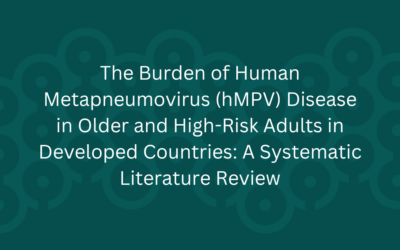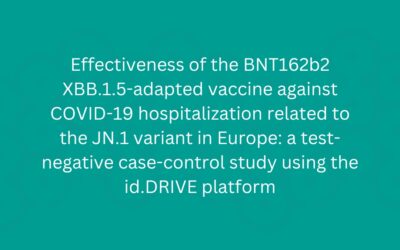Abstract
Introduction: Respiratory syncytial virus (RSV) causes a substantial disease burden among infants. In older children and adults, incidence is underestimated due to nonspecific symptoms and limited standard-of-care testing. We aimed to estimate RSV-attributable hospitalizations and deaths in Spain during 2016-2019.
Methods: Nationally representative hospitalization and mortality databases were obtained from the Ministry of Health and the National Statistical Office. A quasi-Poisson regression model was fitted to estimate the number of hospitalizations and deaths attributable to RSV as a function of periodic and aperiodic time trends and viral activity, while allowing for potential overdispersion.
Results: In children, the RSV-attributable respiratory hospitalization incidence was highest among infants aged 0-5 months (3998-5453 cases/100,000 person-years, representing 72% of all respiratory hospitalizations) and decreased with age. In 2019, estimated rates in children 0-5, 6-11, 12-23 months and 6-17 years were approximately 1.3, 1.4, 1.5, and 6.5 times higher than those based on standard-of-care RSV-specific codes. In adults, the RSV-attributable cardiorespiratory hospitalization rate increased with age and was highest among persons ≥ 80 years (1325-1506 cases/100,000, 6.5% of all cardiorespiratory hospitalizations). In 2019, for persons aged 18-49, 50-59, 60-79, and ≥ 80 years, estimated rates were approximately 8, 6, 8, and 16 times higher than those based on standard-of-care RSV-specific codes. The RSV-attributable cardiorespiratory mortality rate was highest among ≥ 80 age group (126-150 deaths/100,000, 3.5-4.1% of all cardiorespiratory deaths), when reported mortality rate ranged between 0 and 0.5/100,000.
Conclusions: When accounting for under-ascertainment, estimated RSV-attributable hospitalizations were higher than those reported based on standard-of-care RSV-specific codes in all age groups but particularly among older children and older adults. Like other respiratory viruses, RSV contributes to both respiratory and cardiovascular complications. Efficacious RSV vaccines could have a high public health impact in these age and risk groups.
Keywords: Disease burden; Epidemiology; Hospitalization; Mortality; Respiratory syncytial virus.
© 2024. Pfizer Inc.
Conflict of interest statement
Mariana Haeberer, Caihua Liang, Charles Nuttens, Jessica Atwell, Cristina Mendez Diez, Bradford D. Gessner, Elizabeth Begier are employees of Pfizer and may own Pfizer stock. Robin Bruyndonckx, Aleksandra Polkowska-Kramek, Maribel Casas, Francesca Lemme, Worku Biyadgie Ewnetu, and Thao Mai Phuong Tran are employees of P95, which received funding from Pfizer to conduct this study and for manuscript development. Antoni Torres received funding to be a speaker for Pfizer, MSD y Janssen.






0 Comments